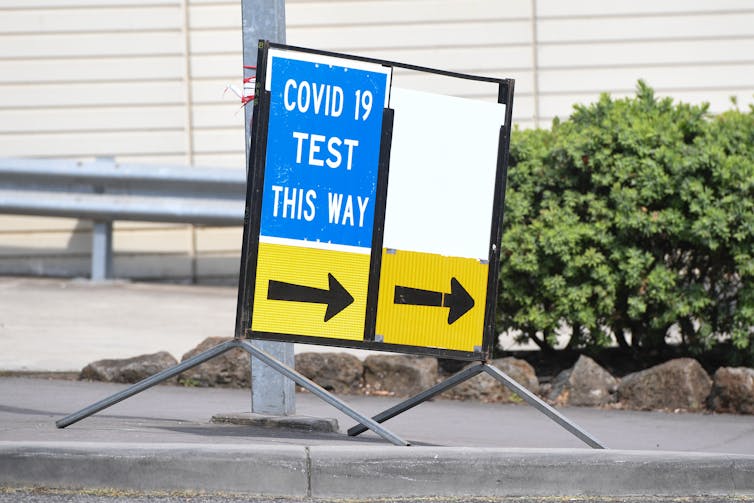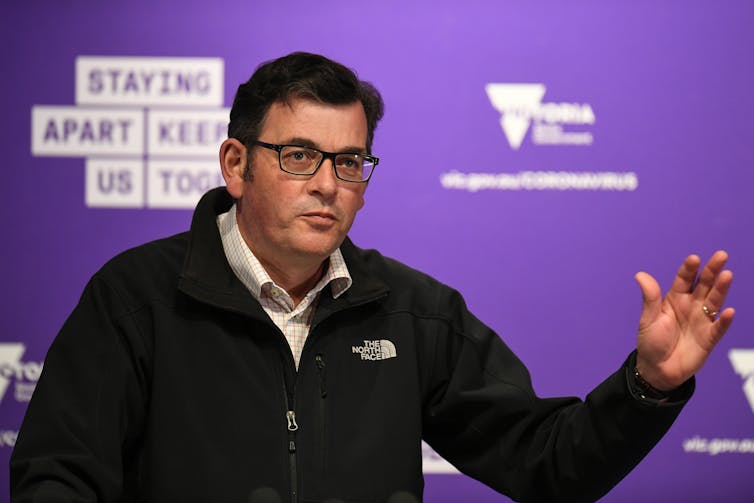Today marks the official end of the second wave in Victoria, as old freedoms return
- Written by Hassan Vally, Associate Professor, La Trobe University
Victorian Premier Daniel Andrews today announced the most significant easing of Melbourne’s coronavirus restrictions since the state went into “stage 3” lockdown on July 9.
From 11.59pm on Tuesday night, retail, restaurants, cafes and bars will finally be able to open up in Melbourne. Gatherings of up to ten people outdoors are now allowed from any number of households, and the four reasons to leave your home have been abolished. Outdoor contact sport for under-18s returns, as does outdoor non-contact sport for all ages.
Residents will have to wait until Tuesday for confirmation on how many visitors they’ll be allowed in their homes, as Andrews reiterated that indoor gatherings represent the highest risk of transmission. But he ruled out a “bubble” approach, which I think is smart — if the rules are too complicated they become harder to follow.
The 25km travel limit and the “ring of steel” between Melbourne and regional Victoria will be removed from midnight on November 8. Gyms and fitness centres will also reopen from that date.
Second wave defeated
Although we’ve been through a rollercoaster of emotions over the past 36 hours, the recording of zero new COVID-19 cases today and the further relaxing of restrictions marks the official end of the second wave in Victoria.
By working together, after the peak of more than 700 new cases a day in early August, Victorians have brought virus transmission under control, and now squashed it completely. For this, all Victorians should be commended.
This is a significant achievement — our equivalent of overcoming a ten-goal deficit at half-time in the grand final and starting the final quarter with a slender lead. Although the work is not done, and we’re exhausted, we should celebrate what we have been able to achieve.
Cluster-busting is key
Of course, we cannot ignore what happened in the northern suburbs of Melbourne this past week. The timing of this cluster was unfortunate, and the resulting postponement of the announcement of the relaxing of restrictions yesterday was, for many of us, devastating. But to frame it as a positive, if there was any lingering uncertainty about our capacity to respond to clusters, this should now be laid to rest.
 Testing and tracing must continue.
Erik Anderson/AAP
Testing and tracing must continue.
Erik Anderson/AAP
The incident provided the perfect opportunity to show how effectively we can handle clusters. By targeting contacts of known cases as well as contacts of contacts, we’ve shown that, rather than crude geographic lockdowns, we can control transmission of the virus by bringing lockdowns to where the cases are.
This is what best-practice public health looks like, and the government should be commended for continuing to refine and improve the public health response to these clusters. We should now be able to place our trust in the public health response.
With relaxed restrictions comes personal responsibility
But it’s important to be aware these newly regained freedoms come with obligations. As prescribed restrictions ease, the pendulum swings towards individuals taking responsibility for managing their risks, rather than government telling you what you can and can’t do.
As Andrews said, “this virus isn’t going away”. So it’s expected that we continue all of the behaviours we’ve come to know, such as regular and frequent hand-washing, practising physical distancing, avoiding large crowds, and wearing masks when you leave the house.
 Easing restrictions doesn’t mean an end to COVID-safe behaviours.
Erik Anderson/AAP
Easing restrictions doesn’t mean an end to COVID-safe behaviours.
Erik Anderson/AAP
And most important of all, make sure you get tested as soon as possible if you develop even the slightest of symptoms.
Victorians have shown how responsible they are, it’s time to reward them with the trust they’ve earned.
Read more: Where did Victoria go so wrong with contact tracing and have they fixed it?
Authors: Hassan Vally, Associate Professor, La Trobe University




